MURFREESBORO, Tenn. — Middle Tennessee State University forensic science majors met at the intersection of justice and science in the courtroom of Circuit Court Judge Barry Tidwell recently for the culmination of a semester-long project.
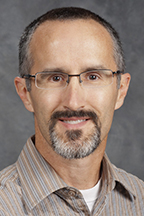
Two dozen students in the forensic senior seminar participated in a mock trial program organized by Tidwell and MTSU adjunct instructor Andrea King, who is also a forensic scientist with the Tennessee Bureau of Investigation.
“One of the big things a forensic scientist has to do is testify in court,” explained Frank Bailey, MTSU professor and director of MTSU’s Forensic Science program offered through the Department of Biology within the College of Basic and Applied Sciences. “You must be believable and confident on the stand.”
Tidwell, whose 16th Judicial District covers Rutherford and Cannon counties, presided over the mock trial, which took place in mid-November at the Rutherford County Judicial Center in Murfreesboro. Rutherford County Assistant District Attorney Allyson Abbott and public defender Sean Williams cross-examined students based on prefabricated scenarios they created as part of coursework.
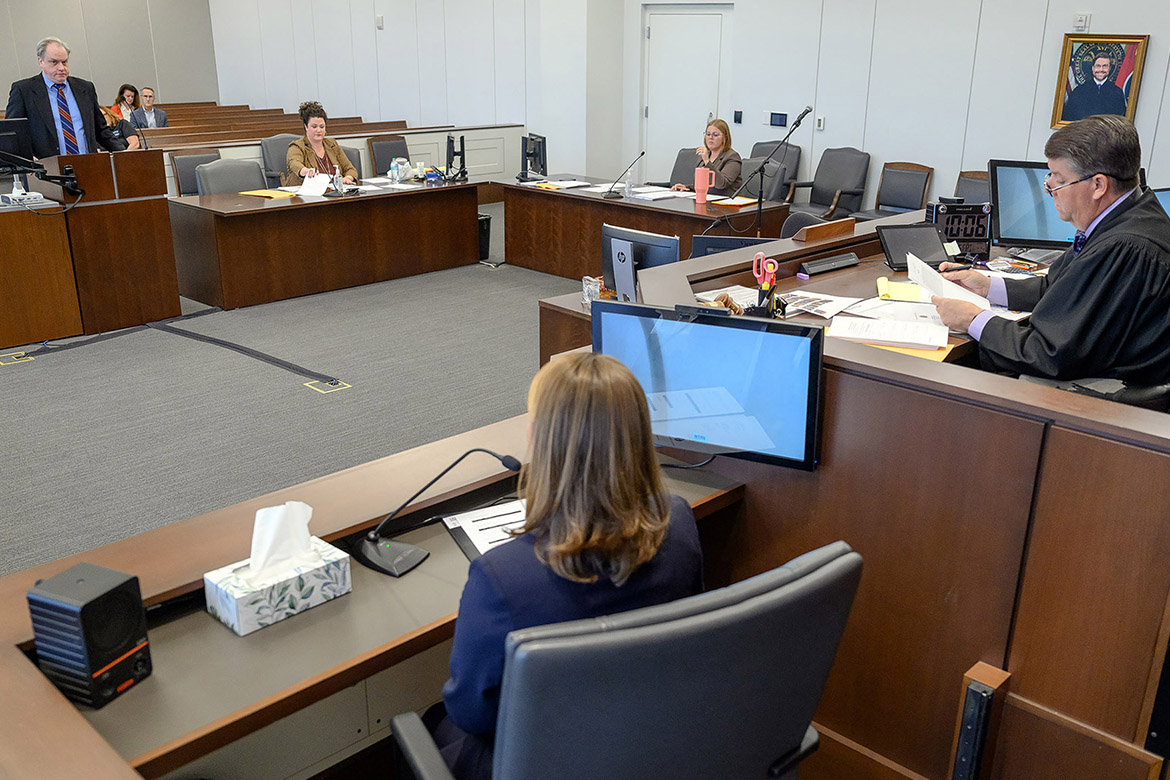
In the weeks leading up to the mock trial, students in the class crafted their own cases and professional “characters,” then wrote up reports based on the scenarios, King explained.
“The big picture is, you’re telling the court the science you performed. Overall, what they learn is comparison science vs. hard science,” King said. “Testifying with a judge and defense in a court proceeding, and being able to tell them what you do, gives them a leg up.”
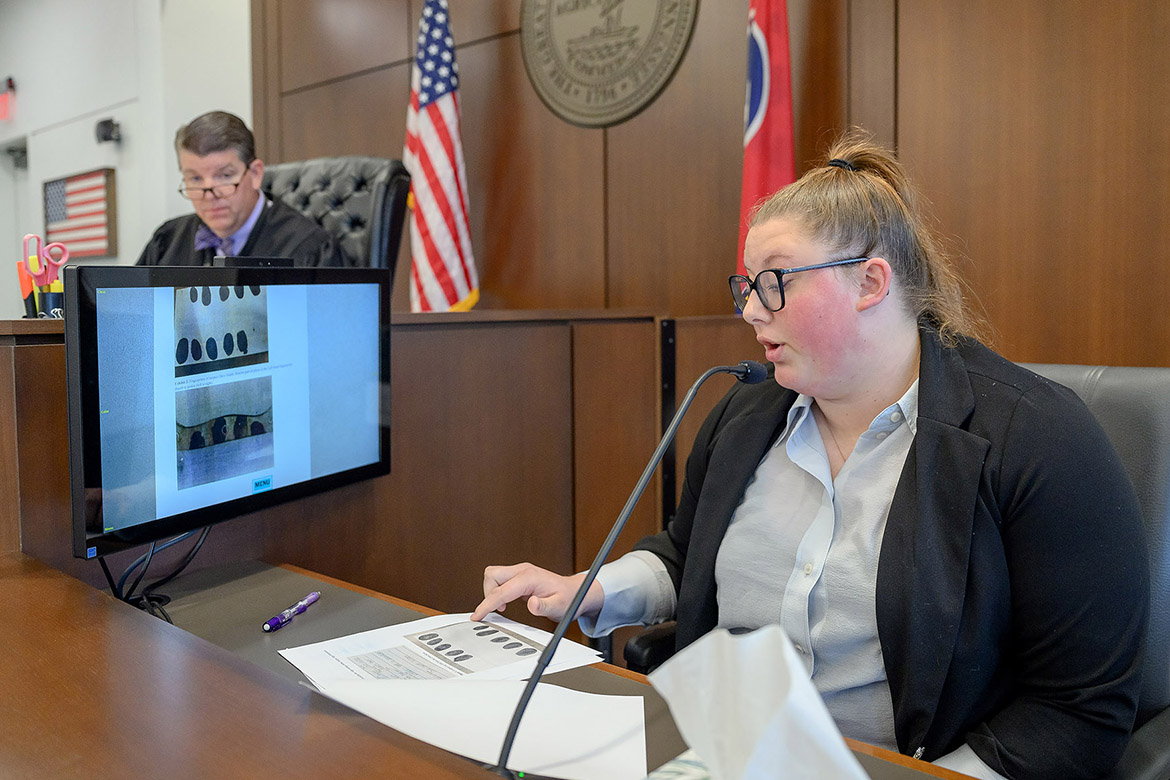
Following each student’s participation, Tidwell offered constructive critiques on their performances.
“I place a high value on the students getting the experience of being in court, being placed under oath, and answering questions from attorneys based on their reports and investigative scenarios,” Tidwell said. “I believe it is important for them to be able to see and feel what it is like to have their work subjected to questioning and review by the lawyers and the court as if it was a real case.”
During the mock trial, Jaylon Jefferson of Memphis took the stand as a fingerprint analyst and called the experience “transformative.” At first, he admitted he was a little nervous.
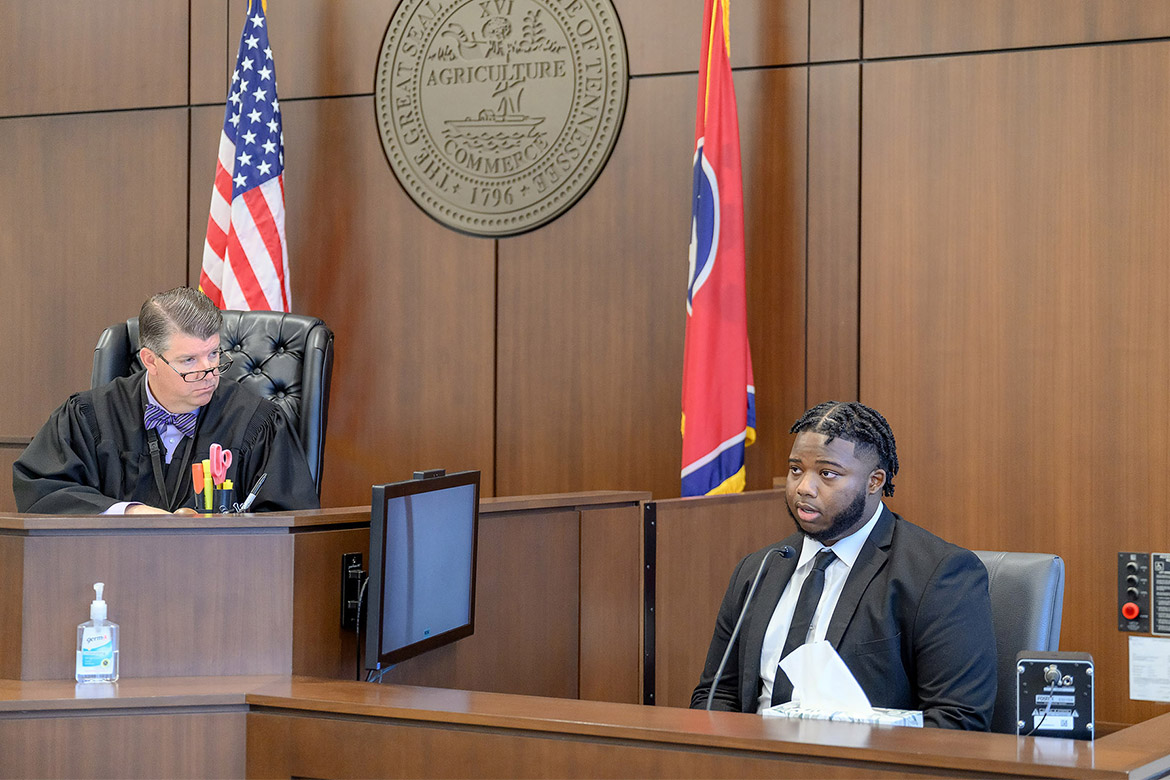
“Once I got into the flow of explaining the evidence … I was able to stay focused on my role,” said Jefferson, who plans to be a forensic nurse. “This experience bridged the gap between theoretical knowledge and practical application.”
Katherine Smeltz of Brentwood took her experience as a pharmacy tech to craft a case involving a nurse who poisoned a patient with a deliberate overdose of medication.
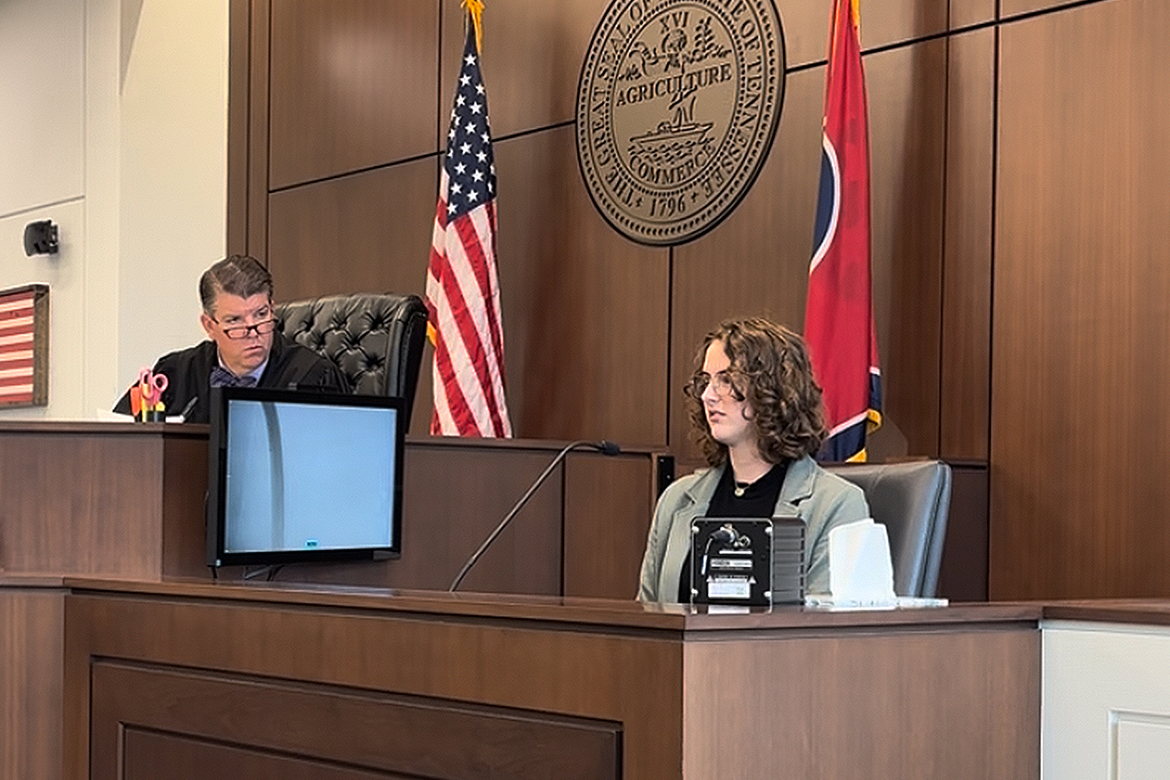
“Everything I have learned in chemistry, biology and criminal justice over these few years all had pieces that played into this mock trial,” said Smeltz, who hopes to work for the FBI. “So it was beneficial for my future, as I will have to testify again, and it also made me fully connect all of my classes to what it means to be a forensic scientist.”
The program was started in 2010 by the late Laura Cole, an adjunct instructor and forensic scientist who passed away in 2023. Her legacy is kept alive with an annual award named in her honor, given to the student with the best mock trial performance. This year, senior Camile Phillips won the award.
Bailey said most students laud the mock trial as one of the most advantageous experiences in MTSU’s undergraduate forensic science degree pathway, which is one of 31 programs in the country that is accredited by the Forensic Science Education Programs Accreditation Commission.
Students must take “an extremely rigorous curriculum” to garner experience in scientific tests and techniques.
To learn more about the program, visit https://www.mtsu.edu/program/forensic-science-b-s/.
— Nancy DeGennaro (Nancy.DeGennaro@mtsu.edu)
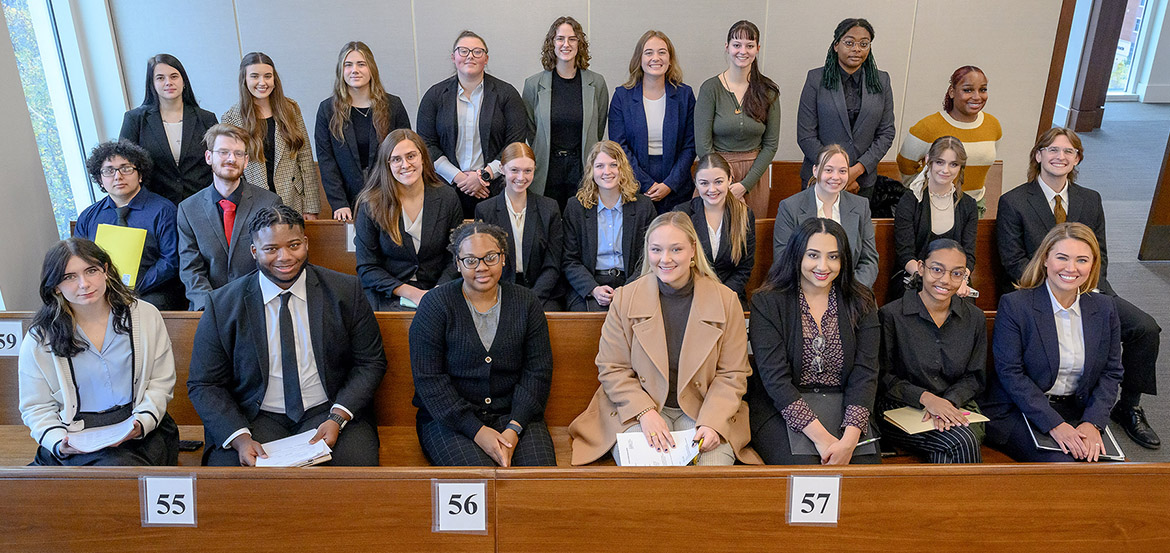

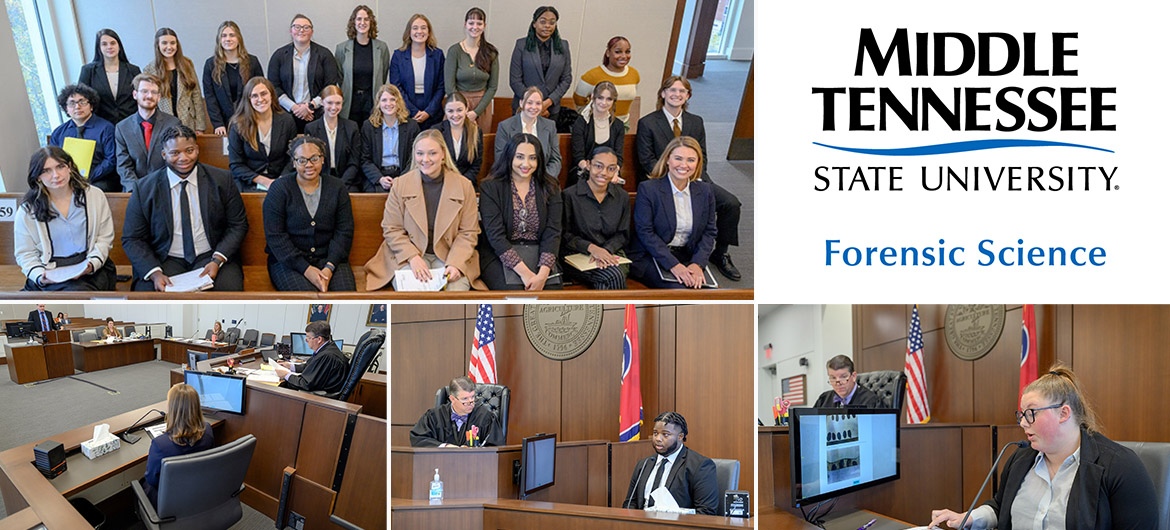
COMMENTS ARE OFF THIS POST